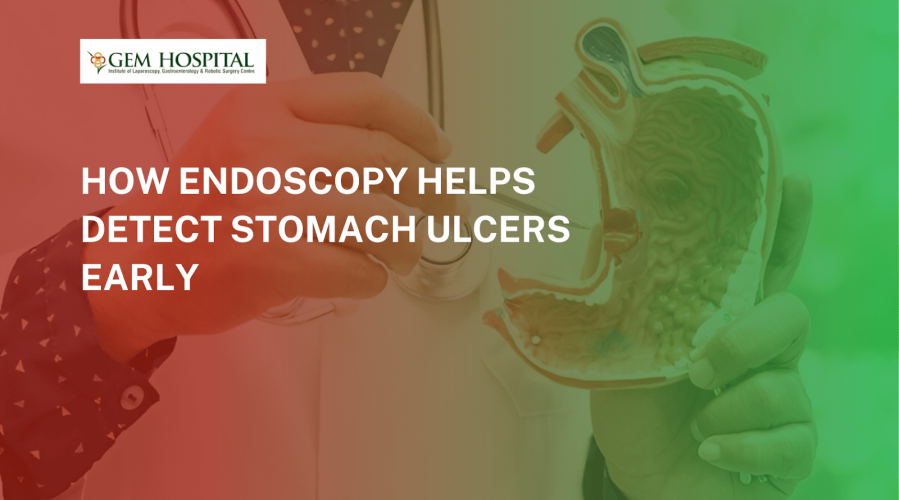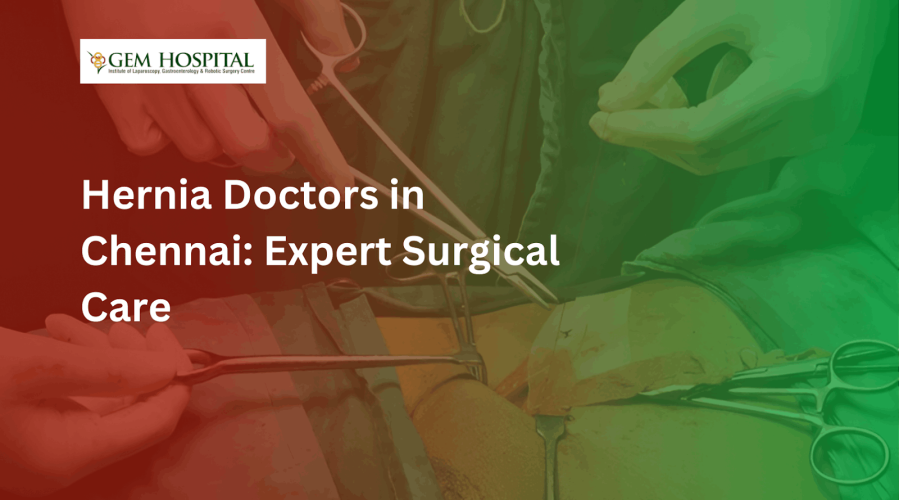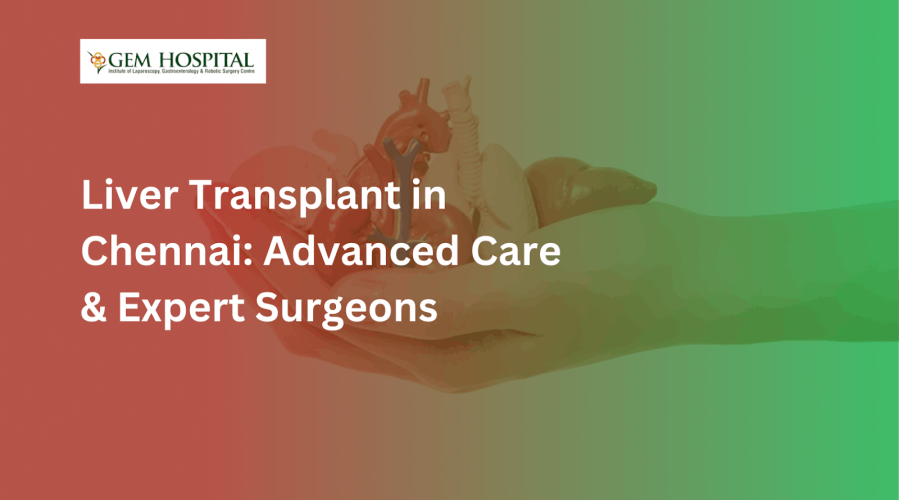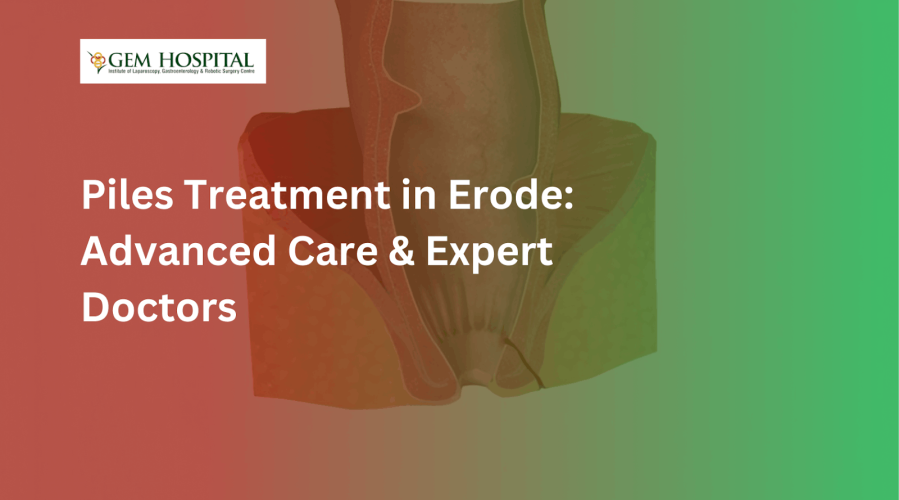Consult experienced hernia doctors in Chennai for expert surgical care. Advanced diagnosis, safe hernia surgery, and faster recovery with specialized treatment.
How Endoscopy Helps Detect Stomach Ulcers Early

Stomach ulcers also known as gastric ulcers can lead to burning mouth, nausea, indigestion, and in some cases even internal bleeding. The best way to manage this condition is through early detection, and one of the most reliable methods of diagnosis today is through endoscopy for stomach ulcer detection.
When stomach issues get worse, or do not improve with simple medicine, healthcare professionals can offer quick solutions. This is where endoscopy can be useful not simply for its definition, but the actual real diagnostic benefit to find ulcers in the earliest stage possible.
Why Early Diagnosis Matters
Many people ignore early signs of stomach ulcers like bloating, indigestion, nausea, or a burning sensation in the upper abdomen until symptoms become severe. However, early diagnosis can help:
- Prevent complications such as bleeding or perforation.
- Reduce the risk of recurrence through targeted treatment.
- Confirm whether H. pylori infection is present.
- Monitor ulcer healing and treatment response.
That’s where stomach ulcer diagnosis by endoscopy becomes a crucial tool in a doctor’s diagnostic arsenal.
How Endoscopy Detects Stomach Ulcers Early
Here are the ways in which endoscopy helps in the early detection of stomach ulcers:
1. Direct Visual Confirmation
The primary benefits of diagnosing a stomach ulcer via endoscopy is that it enables the doctor to see the stomach lining directly. Areas that are red or inflamed, as well as any erosions or open sores, can be diagnosed immediately, often before symptoms worsen or manifest.
2. Biopsy Collection
During the endoscopy procedure, doctors can obtain small pieces of tissue from the stomach lining (biopsies) to check for the presence of H. pylori bacteria or to see if a suspicious ulcer may be cancerous. This part of the stomach ulcer diagnosis makes the diagnosis via endoscopy much more thorough than diagnosing the ulcer based on symptoms or imaging.
3. Detection of Complications
Some ulcers may not cause pain, but they could be growing or bleeding silently. An endoscopy can detect early signs of bleeding or damage to the tissue, so that the doctor can provide treatment before they escalate into more serious issues.
4. Evaluation of Treatment Response
For patients that have already begun treatment for some sort of ulcer, stomach ulcer diagnosis via endoscopy can be useful in determining any healing. If the ulcer has not gotten better, or if the ulcer has worsened, the doctor can reevaluate treatment.
Who Should Get an Endoscopy?
Doctors typically recommend endoscopy if a patient presents with any of the following symptoms:
- Persistent or severe abdominal pain
- Unexplained weight loss
- Vomiting or nausea
- Black or tarry stools (indicating internal bleeding)
- A history of ulcers or H. pylori infection
- Age over 45 with new-onset digestive issues
Even if you don't have severe symptoms, stomach ulcer diagnosis by endoscopy can provide peace of mind and prevent future complications.
Is the Procedure Safe?
Endoscopy is a relatively low-risk outpatient procedure. Most patients are lightly sedated and do not remember the procedure, with little to no discomfort. The procedure typically takes approximately 15 to 30 minutes, and patients generally can be discharged on the same day restored back to their baseline.
Possible minor risks may include a sore throat, mild bloating, or a low risk of bleeding if a biopsy is taken, however, the advantages of establishing a diagnosis of stomach ulcer by endoscopy greatly exceed the insignificant risks at hand.
How to Prepare for an Endoscopy
Before undergoing the procedure, patients are usually advised to:
- Fast for at least 6 hours
- Avoid certain medications (especially blood thinners)
- Discuss any allergies or medical conditions
The medical team will provide you with all pre-procedure instructions. Appropriate preparation will help facilitate a timely diagnosis of a stomach ulcer by endoscopy.
Stomach ulcers are common. However, they do not have to be dangerous, especially when they are diagnosed early. Endoscopy is the gold standard when it comes to early and accurate detection. Whether you are experiencing mild digestive discomfort or you have a history of ulcers, stomach ulcer diagnosis by endoscopy could mean the difference between diagnosis and treatment, and catching problems before they become serious.
Book Your Appointment at Gem Hospital
At Gem Hospital, we have advanced endoscopic procedures performed by both certified and experienced general gastroenterologists. If you have been experiencing digestive symptoms or suspect a stomach ulcer, do not procrastinate.
Book an appointment today at Gem Hospital and take your health seriously; get a reliable stomach ulcer diagnosis by endoscopy when possible.
Blogs & Article
Get advanced liver transplant treatment in Chennai with expert surgeons, modern technology, and comprehensive care for safe and successful outcomes.
Get advanced piles treatment in Erode with expert doctors. Safe procedures, modern technology, and effective care for fast relief and recovery.


